It has never been simple to run a small business. In the modern era, AI Tools for Small Businesses automate all tasks to improve productivity through wise decision-making. Whether you’re leading a small or large team, these AI tools for small business can help you manage a small team or a large one to minimize your tasks.
There is an AI solution for practically everything, including email authoring, sales tracking, and customer service. The best part? Many of them are easy to use and affordable, which makes them perfect for startups and small company owners. In this article, we’ll look at the best AI tools for small businesses in 2025. We’ll go over each tool’s features, how it operates, and why it may revolutionize your company. You’ll know at the end which tools are worthwhile to use and how to pick the ones that best suit your requirements.
Why Small Businesses Need AI in 2025
By 2025, AI tools for small businesses will be a necessity due to the growing number of competitors with a bundle of new ideas. Let’s examine why artificial intelligence is so revolutionary in more detail:
1. Save Time on Repetitive Tasks
Time is an issue for many small businesses. Owners frequently handle several tasks, including sales tracking, organizing orders, sending follow-up emails, creating reports, setting up meetings, and even providing customer service. These are all repetitive jobs that AI can do. As a result, you have more time to concentrate on what matters most: expanding your company.
2. Make Smarter Decisions
AI doesn’t just automate — it also helps you think better. You can rapidly understand consumer behaviour, sales patterns, and even emerging trends using AI-powered technologies. This offers you the confidence to make more informed judgments supported by actual evidence rather than assumptions. AI provides you with the information you want, whether you’re launching a product or improving your current ones.
3. Cut Costs and Do More
Hiring full-time help for every task is expensive. However, with suitable AI tools for small businesses, a person can get comparable results at little expense. AI might help you handle marketing, customer service, accounting, and other duties without expanding your workforce. This improves your company’s productivity and helps you stay within your budget.
4. Personalize the Customer Experience
You can provide your consumers the personalized touch they want thanks to AI. AI-powered chatbots and adaptive email proposals have made it possible for businesses to offer quick, personalized support anytime, anywhere. This keeps customers happy and builds connections, which encourages the growth of your business and improves ratings.
In short, AI tools for small businesses in 2025 involves more than just implementing new technology. It all comes down to increasing output, efficiency, and client attention. You may now compete with bigger companies without having lots of employees or huge money thanks to these technologies.
Top 10 AI tools for small businesses in 2025
AI technologies have the potential to improve small business tasks, boost sales, and save time. The top ten AI tools for small businesses that are very practical and user-friendly in 2025 are listed below:
Read Also: Top 10 Free AI Tools for Teachers in 2025 to Save Time
1. Jasper AI
What it does: Jasper is an artificial intelligence (AI) writing helper that can help you write emails, product descriptions, blog entries, and social media captions in a matter of minutes.
Use case: Without paying writers, small company owners may produce content fast.
Why use it: It enhances writing quality, increases SEO, and saves time.
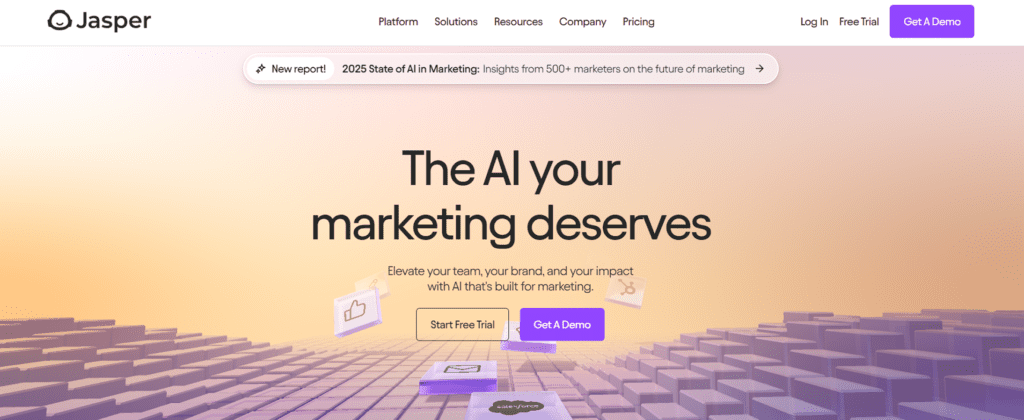
2. Pictory
What it does: Pictory turns text into professional videos using AI.
Use case: Create marketing or explainer videos from blog content.
Why use it: No video editing experience is needed — it is great for promoting on social media.
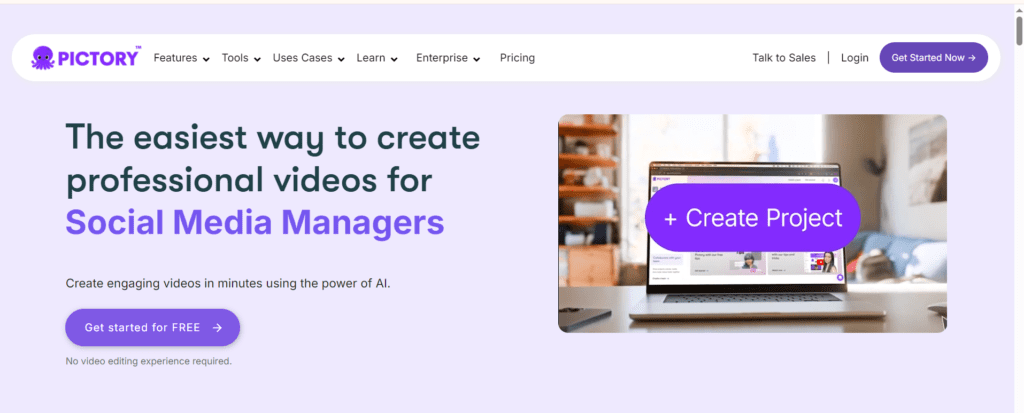
3. Zoho CRM with Zia AI
What it does: “Zia” is an AI assistant that helps handle leads and customer data as part of Zoho’s CRM product.
Use case: Manage customer relationships and get smart suggestions.
Why use it: Improves sales, keeps customer info organized, and provides helpful insights.
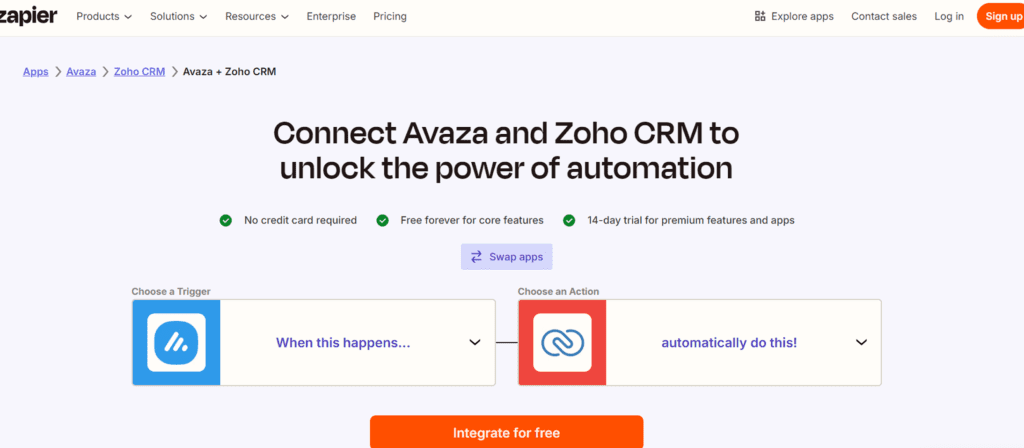
4. ChatGPT by OpenAI
What it does: An AI conversational tool called ChatGPT can write messages, answer questions, and assist with planning.
Use case: Write business emails or respond to customers quickly using it.
Why use it: Flexible, powerful, and easy to integrate into daily tasks.
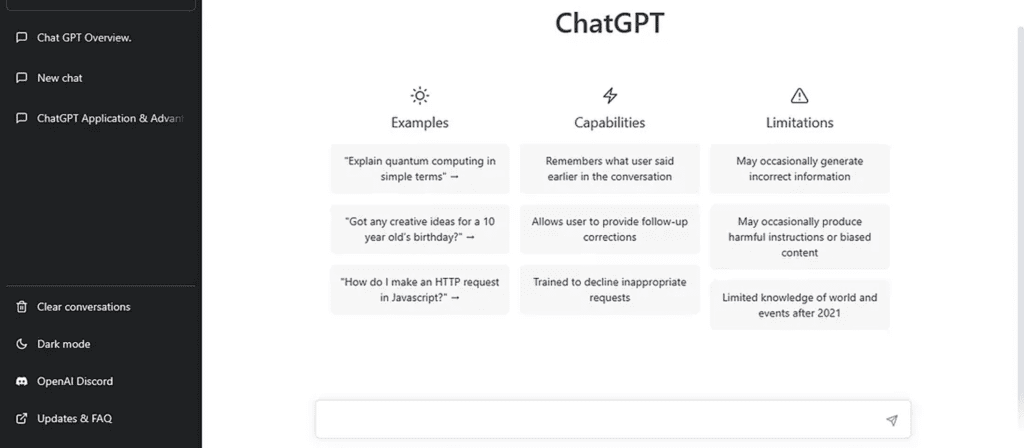
5. Grammarly Business
What it does: Verifies the clarity, tone, language, and spelling of business communications.
Use case: Assists in producing professional documents, emails, and marketing material. Why use it: Builds professionalism and reduces writing mistakes.
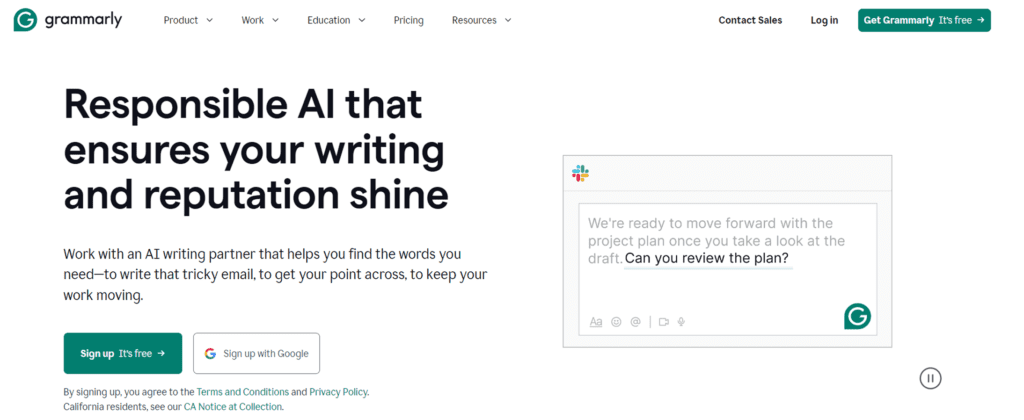
6. Tidio
What it does: AI-powered live chat and chatbot system for websites.
Use case: Handle customer support and respond instantly to common questions.
Why use it: Helps keep customers engaged and satisfied 24/7.
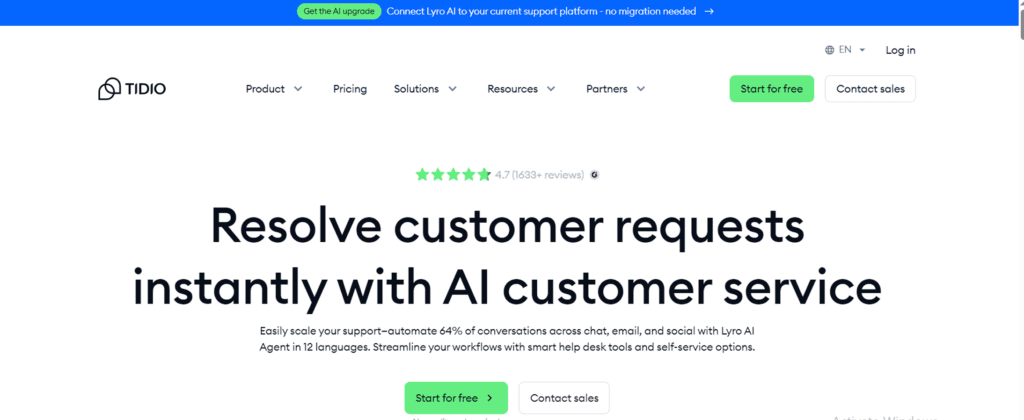
7. Beautiful.ai
What it does: AI presentation tool that creates stunning business slides fast.
Use case: Make pitch decks, marketing presentations, and business reports.
Why use it: Saves time and delivers professional-looking slides.
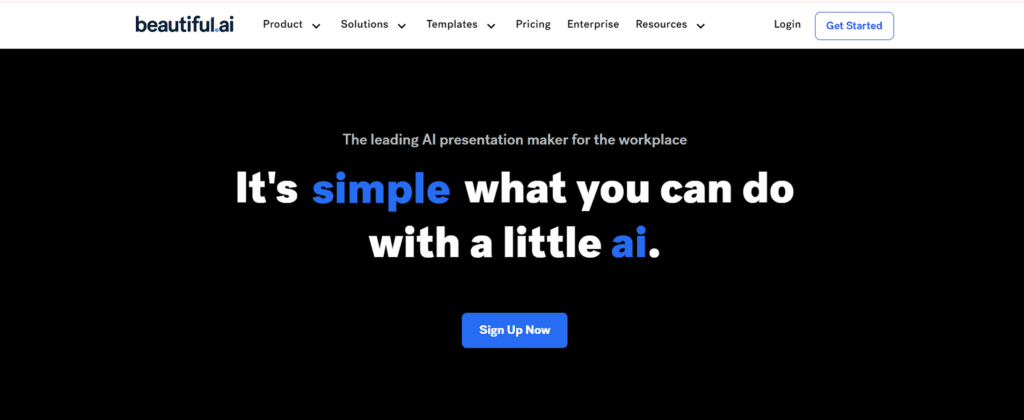
8. QuickBooks with AI
What it does: AI-powered accounting software for more intelligent financial management.
Use case: Manage financial flow, send invoices, and keep tabs on spending.
Why use it: Enables precise and simple financial management, even for those who are not accountants.

9. Looka
What it does: AI-powered logo and brand design tool.
Use case: Build your business’s visual identity — logos, business cards, and more.
Why use it? It is an affordable way to look professional from day one.
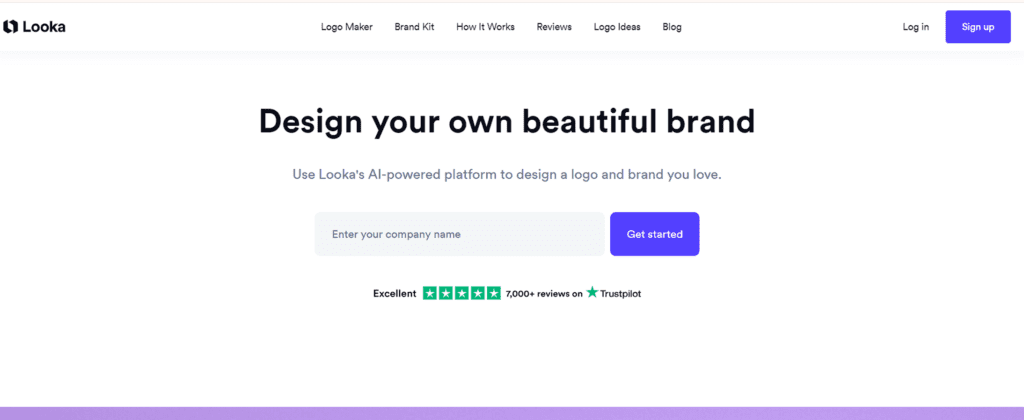
10. Surfer SEO
What it does: It helps you write content that ranks on Google by analyzing keywords and structure.
Use case: Write SEO-friendly blog posts or product pages.
Why use it: Boosts your online visibility and traffic without hiring an SEO expert.

How to Select the Right AI Tools for Small Businesses
Selection of suitable AI tools for small businesses might be challenging. With so many tools available, concentrate on what best suits your goals and needs. Here’s a quick method to help you choose wisely:
1. Determine your Business Objectives
Get what you need first. Do you want to create better content, increase income, save time, or improve customer service?
It will be easier to find AI tools for small businesses that solve your particular issues if you know what’s your primary concerns are.
For example, use a product like Zoho CRM if managing leads is your objective.
2. Evaluate Pricing & Scalability
Some tools are free; others offer paid plans. Take into account if the AI tool will expand with your company in addition to its cost.
Tip: Before making a purchase, always see whether there is a free trial available.
3. Consider Ease of Integration
Wisely select AI tools for small businesses that works smoothly with the apps you already use, such as QuickBooks, Shopify, WordPress, or Google Workspace.
A simple connection minimizes tech issues and saves time.
Pro Tip: Websites and apps may easily incorporate tools like ChatGPT and Tidio.
4. Check for Customer Support & Security
A good AI tool should offer reliable customer service, tutorials, and quick help. Also, ensure your data stays secure and private.
Check for privacy policies, encryption, and email or live chat support.
Future Insights: What’s Next for AI and Small Businesses?
Here are some significant trends that small company owners should watch as we go forward:
1- Hyper-personalization is going to become standard.
AI will continue to evolve in personalizing customer journeys. Businesses that utilize personalized marketing, from intelligent product suggestions to AI-written emails, will stand out.
2- Voice AI and chatbots will replace customer service.
Consider voice assistants and more advanced AI chatbots on call 24/7 to answer customer questions. These tools will become more human-like, improving response quality and increasing sales conversions.
3-AI Will Help with Smart Financial Management
AI-powered hiring platforms that analyze resumes, evaluate suitability, and even perform AI-driven interviews will help small firms locate the appropriate individuals more quickly.
4- AI Will Make Hiring Easier
AI-powered hiring platforms that examine resumes, judge suitable candidate and even perform automated interviews will help small firms to reduce the expense.
5- Increased Focus on Ethical AI
The importance of AI in decision-making, data privacy, and transparency is growing day by day. Small businesses must make sure they applying safe, legal, and ethical technology.
What You Should Do Next
- Start small by using low-cost or free AI products that address a major problem in your workflow.
- Pay attention to technologies that increase productivity, help you interact with clients, or save time.
- Stay informed. Maintaining the trends will give you a competitive advantage because AI is evolving quickly.
Final Thoughts
AI tools are increasingly essential for small businesses to remain competitive in. Begin modestly. Please select one or two tools to solve your present problems; they may be marketing, content production, or customer service.
You may gradually expand your use of AI to include more business domains as your comfort level and confidence increase. AI is ultimately meant to complement your job, not to replace it. You will have a greater advantage over competitors who are still forced to do everything by hand, the sooner you investigate it.
For more Tech updates visit our website


